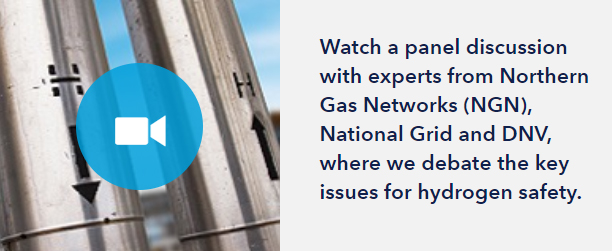Contact us:
For hydrogen to gain broad acceptance and adoption – in domestic settings and for new applications beyond current industrial uses – industry and regulators will need to prove the safety case.
DNV carries out safety analysis of hydrogen applications, experiments to obtain knowledge about consequences for full-scale incidents, and offers technical solutions to determine time- and cost-optimal solutions. We set and check requirements for safe and reliable design, construction, and use of hydrogen, deliver risk studies, and develop and support regulatory documentation.
Services to energy and maritime industries
- Full-scale experiments to study leakages and fire and explosion behaviour
-
Quantitative risk assessments (QRAs) and HAZID studies, for onshore and maritime applications, such as:
- Transportation and storage assets (hydrogen/natural gas/LNG/CO2)
- Hydrogen systems and components on board maritime vessels
- Hydrogen refuelling stations and maritime bunkering systems
- Validation of fire and explosion models for quantitative risk assessments (QRAs)
- Risk-based technology qualification according to DNV Recommended Practice
- Development of odorants, metering, and analytical methods
- Development of guidelines and standards for hydrogen safety and quality
- Identifying safe limits for hydrogen in natural gas appliances
- Review of concept designs of hydrogen carriers
- Alternative design and arrangement analysis, and technology qualification of hydrogen systems onboard vessels.
Classification (maritime)
- Certification of hydrogen materials and components for maritime vessels
- Classification of hydrogen carriers and ships using hydrogen as fuel
- Survey of hydrogen carriers and ships using hydrogen as fuel
- Approval in Principle (AiP) for hydrogen-fuelled ship installations and hydrogen containment systems.




